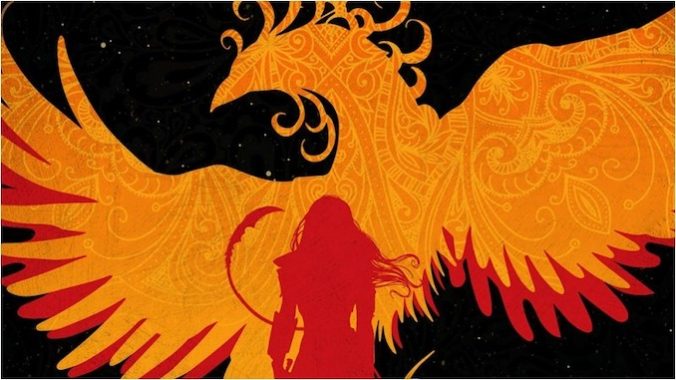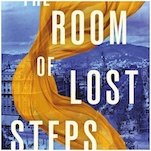The Phoenix King Methodically Builds Out a Rich and Distinctive Fantasy World

Half the work in any fantasy series is set up. How does this world we’re entering work? What are its rules? Does it have a history, a hierarchy, or an existing religious iconography? Is there magic? Has there ever been magic? How is it divided? Who controls its kingdoms? And what do those rulers and/or leaders want? These building blocks are all necessary for a satisfying story, but sometimes putting them together in a coherent, cohesive way can be challenging. And Aparna Verma’s The Phoenix King has more moving pieces than most.
Set in a world that mixes fantasy elements with advanced science-based technology, Verma’s debut serves many masters with a workmanlike focus, carefully assembling the building blocks of a story that’s ultimately much larger and more complex than it appears at first glance. One part political thriller, one part love story, one part messy family drama, and one part pseudo-coming-of-age saga, this is a story of liminal spaces, of morally gray characters, of bad choices and worse options, of betrayal, survival, and failure. It is, perhaps most importantly, a story that builds on itself as it goes, and one whose ultimate depth may surprise readers by the time they get to the last page.
The Phoenix King is the definition of a slow burn in many ways, from the romance at its center to its larger worldbuilding. Verma is content to let readers discover the world of Ravence slowly, and only gradually introduces larger elements of its history, society, and religious structure. A desert kingdom in every sense of the word, the Ravanis worship a brutal god known as the Phoenix and its rulers—the descendants of the man who initially founded their capital city among the dunes—are notable for the fact that they can wield fire magic. But although the Eternal Fire is meant to answer to the kings and queens that command it, it’s clear throughout that this elemental creation can often have a mind of its own, demanding a heartrending sacrifice from those who hope to master it.
The story revolves around three primary POV characters: Elena Aadya, the heir of Ravence, who is set to inherit her kingdom’s throne when she turns twenty-five. But she must learn to control her family’s ancestral fire magic before her coronation or her people will never accept her rule. Her father, Leo Malhari, is the reigning Phoenix King, willing to do anything it takes to keep his country under control, deploying everything from propaganda and manipulation to brute force and undercover spies. Terrified of the return of the Phoenix’s prophesied herald known as the Prophet, who is meant to burn both the desert and the nonbelievers, the king makes increasingly oppressive choices to root out any opposition to his rule. And Yassen Knight is an assassin seeking a chance to start over after a failed mission when he returns to Ravence to serve the royal family of his mother’s homeland, He becomes part of Elena’s guard after she agrees to marry his best friend Samson, the Landless King of a refugee people whose home has been conquered by a neighboring kingdom whose soldiers are a mix of both man and machine.
-

-

-

-

-

-

-

-

-

-

-

-

-

-

-

-

-

-

-

-

-

-

-

-

-

-

-

-

-

-

-

-

-

-

-

-

-

-

-

-








































